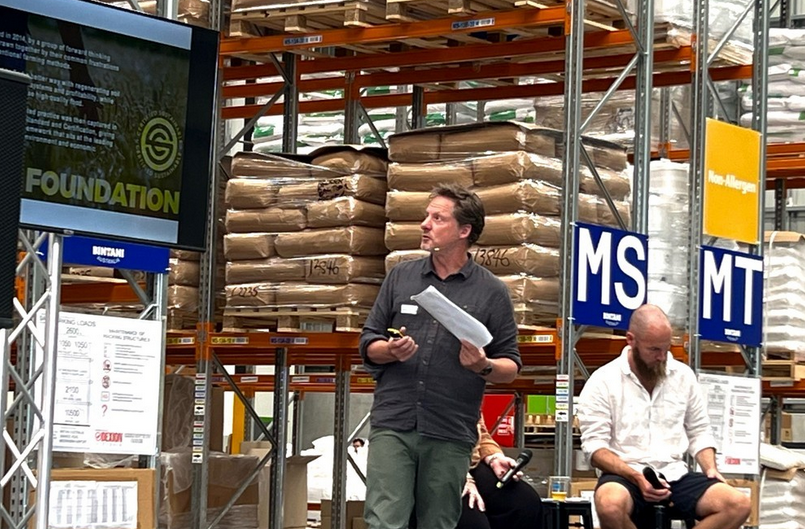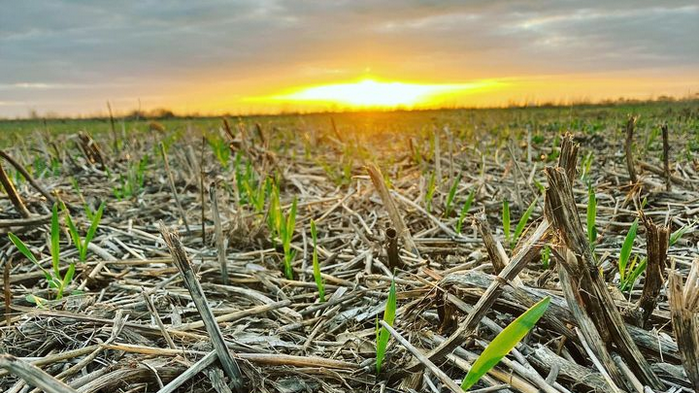Liz Wells, July 24, 2023
CERTIFIED Sustainable has found a niche between conventional and organic farming which is kicking production goals for growers, and supplying grain with ESG credentials to discerning maltsters, brewers and bakers.
Founded in 2015, Certified Sustainable is a not-for-profit organisation whose registered producers in total manage around 100,000ha, including 25,000ha of cropping, Australia wide.
Its certification system excludes growers from using urea, fungicides and Group B herbicides, which is fostering an improvement in soil health, and with the management benefit of no in-crop spraying past the Z30 growth stage.
The initial goal of the Certified Sustainable system was to produce traceable grain with nil reportable residues, which by coincidence rather than design is producing grain with low Scope 1, 2 and 3 carbon emissions, and has given it added appeal to companies with net zero emission targets.
Since its inception, Certified Sustainable has seen a tenfold increase in the tonnage its growers supply to Gunnedah’s Wholegrain Milling, and since 2021, the amount of barley sold to maltsters has increased 3000 percent.
Reduced inputs bring benefits
Certified Sustainable growers include Kyle Pearse, who is selling his malting barley for a premium over what non-certified grain can get, and at a price he negotiates directly with the buyer.
From his base in Victoria’s Southern Mallee, he said he got on to Certified Sustainable in his quest to find a system with reduced reliance on inputs.
“We were trying to come up with a more sustainable way of farming,” Mr Pearse said.
“We were becoming more and more reliant on a heap of different inputs, and we wanted to find a way we could grow the same amount of grain with less inputs.”
“We felt what we were wasn’t sustainable in the long term, so we started farming a bit differently, and we’re doing it with a lot less energy.”
Anecdotal evidence from growers including Mr Pearse says crops grown on reduced inputs are achieving constant growth, rather than “bolting” on applied fertiliser, and flagging when synthetic nutrition is not available, or the season cuts out.
“The plants are developing bigger root systems, and there are lower nitrate levels in their sap; that means we’re not so likely to get smashed with frost, or when it gets dry.”
Mr Pearse said improving soil health was the key so that plants are better able to nourish themselves.
“We want to get the system 100pc working; we wanted to be profitable, and we wanted to have a fairly low-risk production system.”
Lower emissions add appeal
Wholegrain Milling, a family business from Gunnedah, NSW, holds a significant place in Certified Sustainable’s journey as one of the early supporters of regenerative farming and sustainable methods.
Renowned for producing stoneground flour since the 1980s, Wholegrain Milling has fostered strong connections with Certified Sustainable growers.
This partnership has led the company to expand its operations from being a miller of organically certified grain to also milling grain from Certified Sustainable growers.
“The first farming families on board where supplying bread wheat to Wholegrain Milling,” Certified Sustainable director Miriam Neilson said.
“What convinced Wholegrain Milling to expand beyond certified organic grain was the sustainable story, the methods used to grow the grain, and the consistency of quality it produced.”
“Most of their customers…were patisseries, and artisan sourdough bakers, and they’re always after a quality product.”
Ms Neilson said the goal for Certified Sustainable was to ratify grain with nil reportable residues, and low carbon emissions have been a welcome by-product of improved soil health, and rotations which incorporate legumes.
On the production front, Ms Neilson said Certified Sustainable’s growers have not taken a big yield hit by changing their system, and are reducing risk and money spent on up-front and in-crop inputs, fungicides included.
“We understand fungi are important to the soil microbiome, and their presence can make more minerals available to the plant.”
Nitrogen can come from sources such as organic fertiliser, MAP and ammonium sulphate, but is strictly limited, and growers are encouraged to use microbe-activating seed dressings prior to planting to stimulate soil biology.
Supply chain in place
Beyond the farm gate, products made from Certified Sustainable grain is pushing into mature supply chains.
Wholegrain Milling flour is distributed across Australia, and for specialist malt lines produced at Boortmalt’s Ballarat plant, Bintani is on board.
“Supply being available through Bintani means every microbrewery in Australia can buy it.”

Ms Neilson said many grain-processing companies large and small were chasing carbon-neutral status, and their own ESG goals were encouraging them to support farming systems as ratified through organisations like Certified Sustainable.
“If they buy carbon offsets, where’s the changed practice coming to support that, and to lower emissions?”
Ms Neilson said the company’s methodology was developed in consultation with growers, agronomists and University of Queensland researchers.
“We were lucky enough to get an AusIndustry grant in 2020…and that was the first step in finding a way to measure our farmers lower emissions compared to the 2005 industry baseline.”
CSIRO’s January 2022 Australian Grains Baseline and Mitigation Assessment report says fertilisers contributed around 50pc to total greenhouse gas baseline emissions.
“That’s driving corporations; that are having to report on Scope 3 emissions in food products to find low-emissions ingredients.”
Ms Neilson said reduced emissions have also become an important marketing feature of certified grain.
“Buyers know its emissions story, and that those measurements have been audited.”
Call from consumer
While low-emissions grain production is prized by companies with net-zero carbon targets, Certified Sustainable managing director Ash Truscott said it is also feeding into a discerning retail market.
“We’ve got a drive to build the brand and have positive change through the supply chain from the farm to the product, and brewing is a really good example,” Mr Truscott said.
Mr Truscott said breweries like Stone & Wood and Rocky Ridge Brewing exemplified the need for the label to have credentialed inputs.
“They need certification through the farm, and the malting facility and distributor as well.”
“The market’s significantly changed with the millennials, and they definitely shop differently to the baby boomers.”
Having Boortmalt to process and Bintani to distribute has been behind the massive jump seen in the volume of Certified Sustainable barley now going into the malting supply chain.
“That gives the brewers access to high-quality product that has a story they can tell to their consumer.”
Source: Grain Central

